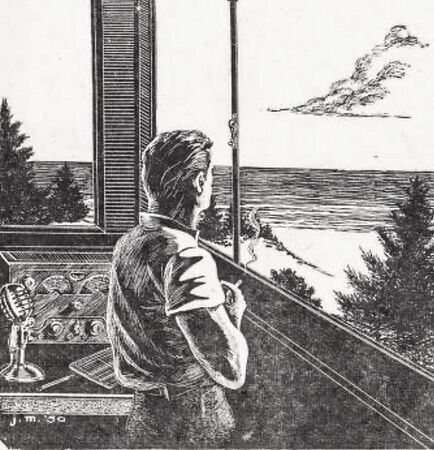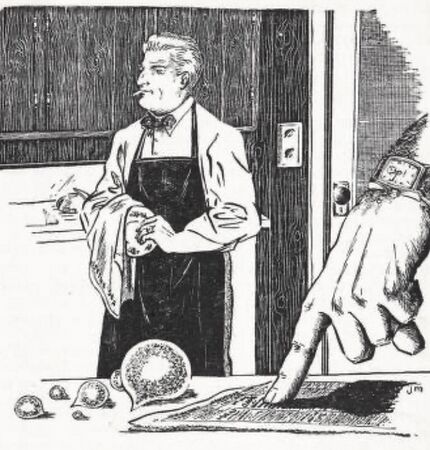Julian May
(July 10, 1931 – October 17, 2017)
Julian Clare "Judy" May (later Dikty) was an American science fiction fan and writer. She grew up in the Chicago area and became a fan in her late teens, publishing the fanzine Interim Newsletter. She helped create the SF International organization in the late ’40s and early ’50s.
She chaired the Tenth World Science Fiction Convention (Chicon II, aka Tasfic) in Chicago in 1952, the first woman to chair a Worldcon. She co-wrote the original music for Asteroid, the first science-fiction ballet, which was performed there.
Her first story, a novelette, Dune Roller, appeared in Astounding’s December 1951 issue, accompanied by her own interior art. She stopped writing sf between 1954 and the early ’70s, when instead she wrote and edited hundreds of children's and YA books as well as books on science, history, biography and religion.
In 1976, she attended Westercon 29 in Los Angeles, her first science-fiction convention in many years, appearing in costume. She was a gifted costumer. That led her back into SF writing, resulting in the very successful Galactic Milieu series, eight novels that involve several religious and philosophical themes. (One of the novels received a nomination for the 1982 Best Novel Hugo.) She also wrote A Gazeteer of the Hyborian World of Conan under the pseudonym Lee N. Falconer.
She met her future husband, Ted Dikty, at a convention in Ohio in 1950 and married him in 1953. They had three children. They moved to the Pacific Northwest and were active in fandom there. She was a member of the First Fandom club (as Julian M. Dikty).
- Entry in The Encyclopedia of Science Fiction.
- Memorial article in Scientifiction: The First Fandom Report (New Series #54, 4th Quarter 2017).
Awards, Honors and GoHships:
- 1982 -- 1982 Best Novel Hugo nomination, Locus Award
- 1991 -- Philcon 1991
- 1993 -- DefCon
- 2000 -- LepraCon 2000
- 2001 -- CopperCon 21
- 2015 -- First Fandom Hall of Fame
- Julian May’s art from Astounding, December 1951.
| Person | 1931—2017 |
| This is a biography page. Please extend it by adding more information about the person, such as fanzines and apazines published, awards, clubs, conventions worked on, GoHships, impact on fandom, external links, anecdotes, etc. See Standards for People and The Naming of Names. |


